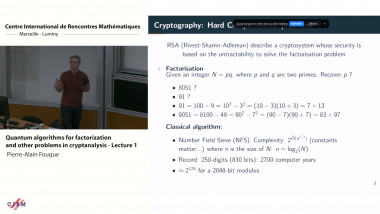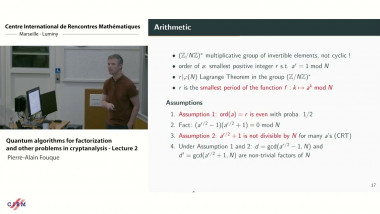Appears in collection : FLAIM: Formal Languages, AI and Mathematics
Cryptography plays a key role in the security of modern communication and computer infrastructures; therefore, it is of paramount importance to design cryptographic systems that yield strong security guarantees. To achieve this goal, cryptographic systems are supported by security proofs that establish an upper bound for the probability that a resource-constrained adversary is able to break the cryptographic system.
In most cases, security proofs are reductionist, i.e. they construct from an (arbitrary but computationally bounded) adversary that would break the security of the cryptographic construction with some reasonable probability another computationally bounded adversary that would break a hardness assumption with reasonable probability. This approach, known as provable security, is in principle able to deliver rigorous and detailed mathematical proofs.
However, new cryptographic designs (and consequently their security analyses) are increasingly complex, and there is a growing emphasis on shifting from algorithmic descriptions to implementation-level descriptions that account for implementation details, recommendations from standards when they exist, and possibly side-channels. As a consequence, cryptographic proofs are becoming increasingly error-prone and difficult to check.
One promising solution to address these concerns is to develop machine-checked frameworks that support the construction and verification of cryptographic systems. In this talk, I will present the state of the art in computer-assisted cryptography and outline future directions for computer-assisted cryptography, notably in terms of automated reasoning.















